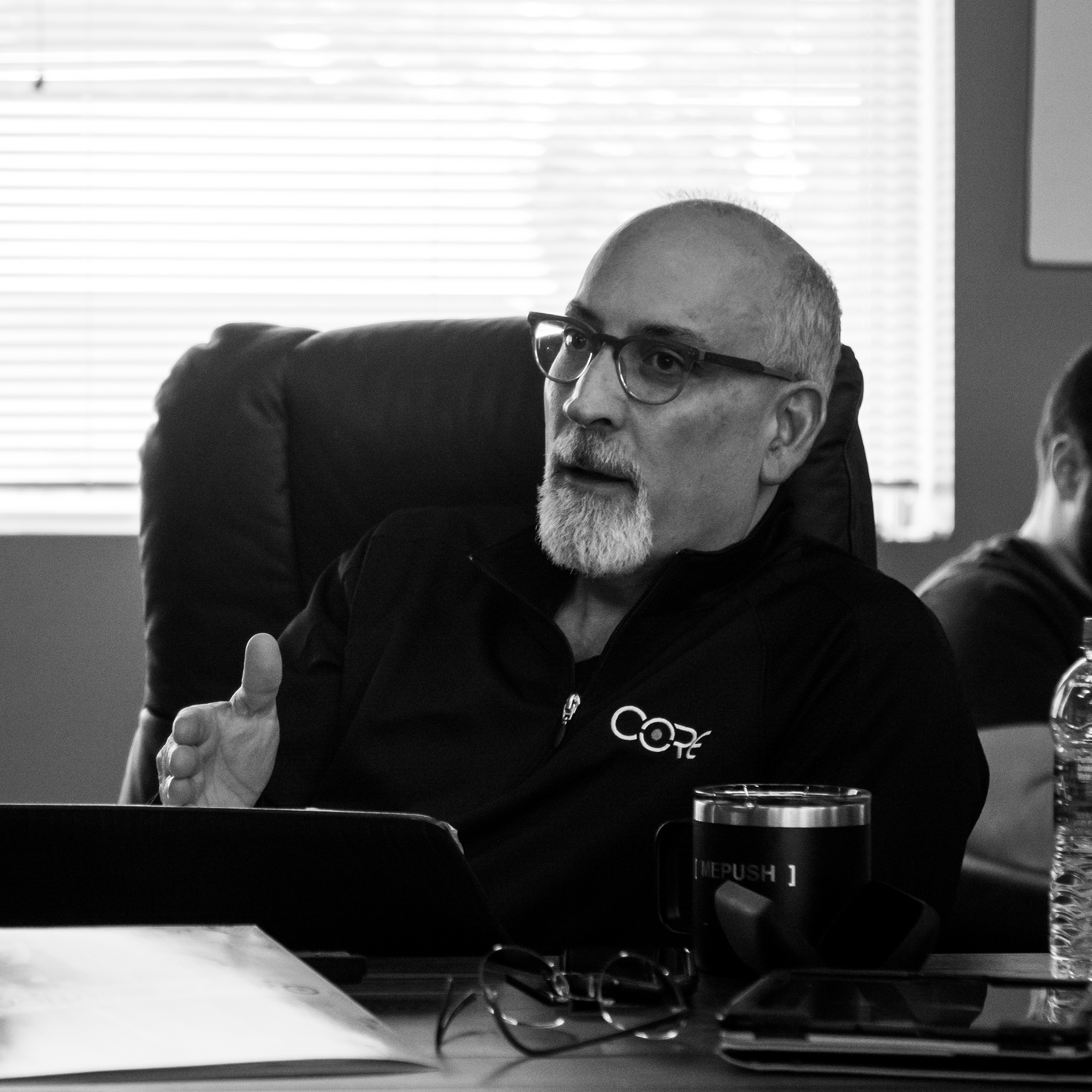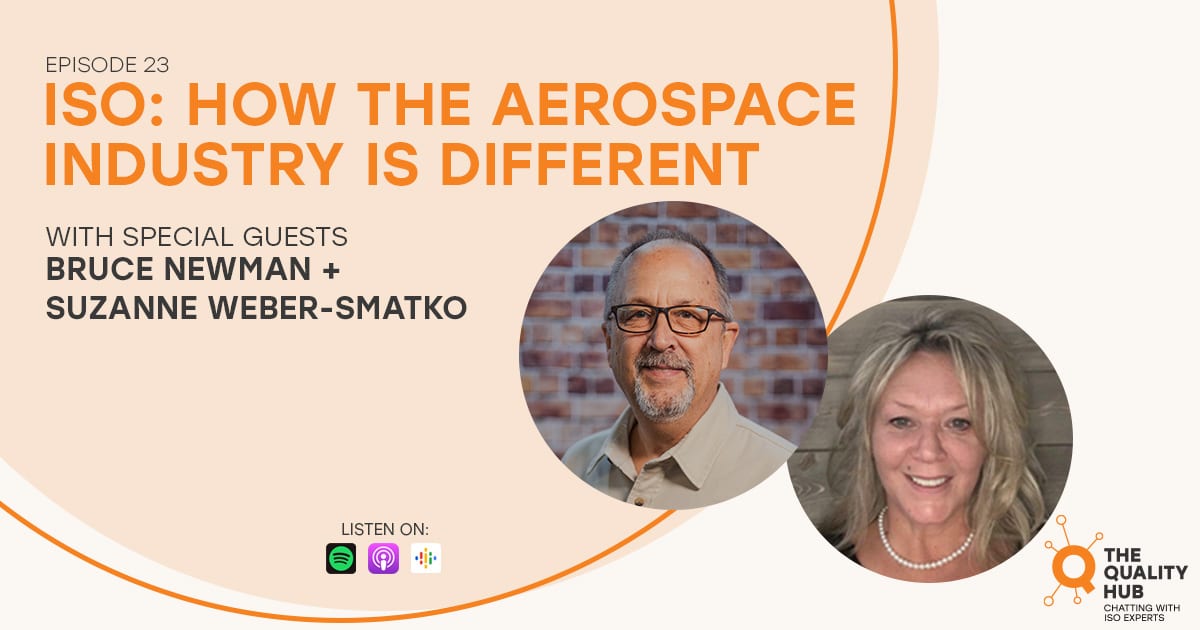AS9100 Clause 4
AS9100 Climate Change Amendment
Effective Immediately
A new amendment to AS9100 has been recently published and it impacts all companies that are currently ISO 9001, AS9100, AS9120, and AS9110 certified as well as any certifications going forward.
What is AS9100 Clause 4 About?
AS9100 Clause 4 addresses the requirements related to the context of the organization within the aerospace quality management system (QMS). This clause outlines the necessary steps for aerospace organizations to understand their internal and external environments, including stakeholders’ needs and expectations, and to establish the strategic direction for their QMS.
Here are the key elements covered in AS9100 Clause 4:
Understanding the Organization and Its Context:
Aerospace organizations are required to determine the internal and external issues that can impact the QMS and their ability to achieve desired outcomes. This involves identifying factors such as organizational culture, structure, governance, policies, regulations, market trends, and competitive landscape.
Get a Free Quote
Understanding the Needs and Expectations of Interested Parties:
Organizations must identify and analyze the requirements and expectations of relevant stakeholders, including customers, suppliers, regulatory authorities, and employees. This includes considering their needs, preferences, complaints, and feedback related to aerospace products and services.
Establishing the QMS Scope:
Clause 4 also involves defining the boundaries and applicability of the QMS within the organization. This includes specifying the products, services, processes, and locations covered by the QMS, as well as any exclusions or limitations.
Determining the QMS Processes:
Aerospace organizations are required to establish, implement, maintain, and continually improve the processes needed to meet QMS requirements and achieve desired outcomes. This includes identifying and documenting key processes, their interactions, inputs, outputs, responsibilities, and performance criteria.
Leadership and Commitment:
Clause 4 emphasizes the importance of leadership and top management’s commitment to establishing and maintaining an effective QMS. This involves defining the organization’s quality policy, objectives, and strategic direction, as well as providing necessary resources, support, and empowerment to ensure QMS effectiveness.
Risk-Based Thinking:
AS9100 emphasizes the adoption of risk-based thinking throughout the QMS to identify, assess, mitigate, and manage risks and opportunities that can affect product and service conformity and customer satisfaction.
AS9100 Clause 4 sets the foundation for the aerospace organization’s QMS by ensuring a thorough understanding of the internal and external context, stakeholder needs, and strategic direction. Compliance with Clause 4 helps organizations establish a robust QMS framework that aligns with industry standards and regulatory requirements while driving continuous improvement and customer satisfaction.
The AS9100 Clauses:
What is the difference between AS9100 Clause 4 and ISO 9001 Clause 4?
AS9100 Clause 4 and ISO 9001 Clause 4 share the same numerical designation and address similar topics, but there are some differences between them due to the specific requirements of the aerospace industry. Here are the key differences between AS9100 Clause 4 and ISO 9001 Clause 4:
Industry Specificity:
AS9100 is a quality management standard tailored specifically for the aerospace industry, while ISO 9001 is a generic quality management standard applicable to any organization, regardless of industry. As a result, AS9100 Clause 4 includes additional requirements and considerations specific to aerospace organizations, such as regulatory compliance, product safety, and risk management within the aerospace context.
Regulatory and Customer Requirements:
AS9100 Clause 4 places greater emphasis on understanding and complying with regulatory and customer requirements specific to the aerospace sector. Aerospace organizations must identify and address relevant regulations, standards, and customer specifications that apply to their products and services.
Product Complexity and Safety:
Aerospace products are often highly complex and safety-critical, requiring stringent quality controls and risk management measures. AS9100 Clause 4 addresses the unique challenges associated with ensuring the safety, reliability, and performance of aerospace products throughout their lifecycle.
Risk-Based Thinking in Aerospace:
While both AS9100 and ISO 9001 advocate for risk-based thinking, AS9100 Clause 4 may place greater emphasis on risk management within the aerospace context. Aerospace organizations are expected to adopt proactive measures to identify, assess, and mitigate risks that could impact product quality, safety, and regulatory compliance.
Strategic Direction and Leadership:
Both standards emphasize the importance of leadership and top management commitment to the quality management system. However, AS9100 Clause 4 may require aerospace organizations to align their strategic direction and quality objectives with industry-specific goals, such as enhancing aviation safety, reducing maintenance costs, or improving supply chain resilience.
While AS9100 Clause 4 and ISO 9001 Clause 4 share common themes related to organizational context, leadership, and risk-based thinking, AS9100 Clause 4 includes additional requirements and considerations tailored to the unique needs and challenges of the aerospace industry. Compliance with AS9100 Clause 4 ensures that aerospace organizations establish and maintain effective quality management systems that meet industry-specific standards and regulatory requirements.
How Does a Company Comply with Clause 4 of AS9100?
AS9100 Clause 4 outlines the requirements related to the organization’s context within the aerospace quality management system (QMS).
Here’s how a company typically complies with Clause 4:
Understanding the Organization and its Context:
The company identifies the internal and external issues that may impact its ability to achieve the intended outcomes of its QMS. Internal issues may include organizational structure, culture, resources, and capabilities, while external issues may include regulatory requirements, market trends, customer expectations, and stakeholder needs.
Determining the Scope of the QMS:
The company defines the boundaries and applicability of its QMS, specifying the products, services, and processes that are included within the scope of certification. This helps ensure that the QMS is focused on areas relevant to the organization’s objectives and stakeholders.
Understanding the Needs and Expectations of Interested Parties:
The company identifies and analyzes the requirements and expectations of relevant interested parties, such as customers, regulatory authorities, suppliers, employees, and other stakeholders. This information helps shape the QMS and ensures that it addresses the needs of all relevant parties.
Establishing the Quality Policy:
The company defines its quality policy, which serves as a formal statement of its commitment to quality and customer satisfaction. The quality policy should be aligned with the organization’s purpose and strategic direction, and it should provide a framework for establishing and reviewing quality objectives.
Appointing Management Representative:
The company appoints a management representative who is responsible for ensuring that the QMS is established, implemented, and maintained by AS9100 requirements. The management representative serves as the primary point of contact for communication with external parties, including certification bodies.
Documenting the Context of the Organization:
The company documents the results of its analysis of the organization’s context, including its internal and external issues, the needs and expectations of interested parties, and the scope of the QMS. This documentation provides evidence of compliance with Clause 4 requirements and helps inform the development of the QMS.
Maintaining Awareness of the Context:
The company ensures that relevant personnel are aware of the organization’s context, including its strategic objectives, risks, and opportunities. This awareness helps employees understand how their work contributes to the organization’s overall success and enables them to make informed decisions aligned with the QMS objectives.
By following these steps and implementing appropriate processes and procedures, a company can effectively comply with the requirements of AS9100 Clause 4 and establish a QMS that is well-aligned with its organizational context and strategic direction.
Helpful Resources: AS9100 – AS9102 – How the Aerospace Industry is Different
AS9100 – AS9120 – How the Aerospace Industry is Different
Join us in this engaging podcast episode as host Xavier Francis sits down with ISO experts Suzanne Weber-Smatko and Bruce Newman. Delve into the intricate world of the AS9100 standards, where they unravel the unique attributes of AS9100/9120. Discover how AS 9100/9120’s laser focus on product safety, operational risks, and stringent supplier controls sets it apart in the aerospace sector. Listen Now.
Consulting Support for AS9100
Every year, we help hundreds of small businesses achieve AS9100 certification. Support for AS9100 is available through any of our Consulting Programs As an American business with a story like yours, we know that time is valuable. Our expert consultants are here to take on the difficult, technical aspects of certification so you can focus on your business. They’ll work with you every step of the way until you’re successfully certified. Interested? Get a Free Quote.
In many industries, AS9100 has become a requirement. When landing a big contract, AS9100 certification could make all the difference.

About Core Business Solutions
"Core Business Solutions was started by my brother, Mike Dawson, and myself, true entrepreneurs at heart looking for a better way to make a living and help small businesses improve the quality of the products and services they provide.
The bottom line: we are real people that have developed a team to come along side you to help you grow and succeed."
-- Scott Dawson, President
Related Standards
We provide consulting support for various other standards, as well as support for companies seeking multiple certifications through an Integrated Management System.
ISO 9001
Quality Management Systems
AS9120
Aerospace Distributors
ISO 14001
Environmental Management Systems
ISO 45001
OH&S Management Systems
ISO 9001
AS9120
ISO 14001
ISO 45001
Learn more about AS9100 at our articles page.
Equip Your Business to Meet AS9100 With CORE
At Core Business Solutions, we’re here to equip your company for success in meeting AS9100 requirements. We’ve helped hundreds of small businesses grow and deliver the best solutions to their clients. We provide ISO training services, consulting help, and compliance software to help you get certified and stay certified. We focus on optimizing your processes and helping you implement an ISO-compliant QMS. When you partner with us, you’ll get the tools and help you need for success. For more information on the AS9100 standard, please visit our articles page. You can also call our consulting office at 866-354-0300 or contact us online.


